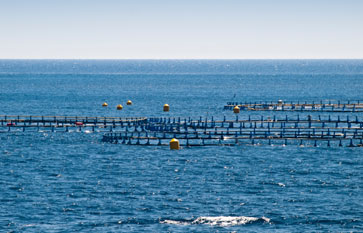This month, USDA added to the list of GMO crops by approving the first GMO potato, just in time for research to show how little scientific evidence there is to justify moving our food system in this direction.
Looking at 47 key GMO crops planted around the world, researchers could find only 18 peer-reviewed studies that assessed their safety before being approved by government entities. They examined crops engineered to tolerate glyphosate (the active ingredient in Roundup) and those that produce pesticides in plant tissues – the most commonly traits in GMO crops, reports Natural News.
Even worse, many of the 18 studies they did find were flawed, say the researchers, which published the study in Environment International.
That means the USDA isn’t alone in relying on GMO companies to validate the safety of their products. Approval of pesticides follows a similar path as we have reported before.
"Although manufacturers who directly profit from chemical sales should continue to bear the costs of testing, this can be accomplished without conflicts of interest by an independent party with no potential for financial gain from the outcome and with no direct ties to the manufacturer," the researchers say.
Organic Aquaculture On the Way
Meanwhile, USDA is expected to soon approve standards for certified organic farmed fish, which sounds interesting until you delve a bit deeper.
It’s hard to believe the National Organic Standards Board (NOSB) would recommend organic certification for penned fish in the ocean, fed with wild fish, meal or oil.

This flagrant abuse of the organic label would jeopardize the integrity of the US organic industry, says the Center for Food Safety in its report, Like Water and Oil: Ocean-Based Fish Farming and Organic Don’t Mix.
Ocean-based fish farms are not compatible with organic standards … period. Aquaculture companies want the label to get premium prices for fish and to give the industry more credibility.
Think about it. How could a confined salmon be certified organic if it lives in a pen? Their lifecycle requires swimming long distances, migrating between fresh water and the ocean.
And organic agriculture requires 100% organic feed for animals – they would have to feed organic fish with other organic fish – meaning wild fish?
Conventional fish farms have been taken to task for feeding confined fish with wild fish, putting pressure on the very populations fish farms are designed to alleviate. There’s simply no way to get around the problems of conventional fish farms – they pollute the water, confined fish become diseased – and that spreads when some inevitably escape.
The basis for organic agriculture is that animals can’t be confined.
Among the many problems:
* Ocean-based fish farms pollute the marine environment. So many fish confined in a small area alters oxygen levels in the water, creating dead zones. Waste and pollution sinks to the ocean floor, negatively impacting plants and animals all the way to the bottom.
* Wild fish suffer. Wild fish flock to fish farms where there’s easy food, altering their natural behaviors (and potentially their genetics if they interbreed) and exposing them to disease. Some confined fish inevitably escape to spread disease and parasites elsewhere.
* Can’t Control What’s in the Ocean, which is full of various kinds of chemicals.
Read our article, A Quiet World Milestone: Farmed Fish Production Overtakes Beef.
Tell USDA open-ocean fish farms should never be certified organic:
